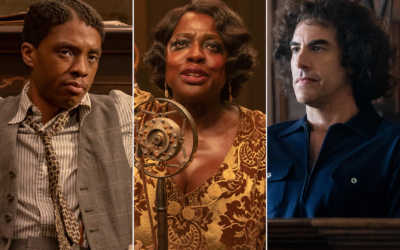Source: The Guardian
After weeks of negotiation and deliberation, it has finally come to this. On Tuesday, May 2nd, the Writers Guild of America (WGA), a labor union consisting of roughly 15,000 film and television writers working throughout the country (about 10,000 of which make up the Guild’s West branch, while just over 5,000 are part of its East branch) declared that a nationwide strike had commenced after talks with the American Motion Picture and Television Producers (AMPTP), an organization representing the industry’s largest visual media production companies, failed to produce a new contract that would satisfy the demands of those who were seeking fairer treatment and wages for their work. Although the WGA had previously voted to ratify a strike earlier this year, none would officially start if the two groups were able to reach a satisfactory agreement and produce a new contract. That doesn’t appear to be the case however, and with negotiations failing to generate anything worthy of the WGA’s approval, the guild has been left with little other choice than to strike. Starting at 12:01 AM that Tuesday, the thousands of writers associated with the WGA dropped their work and took to the streets to picket, kickstarting a stoppage of film and television production that will undoubtedly have a major impact on the industry as a whole.
Some may still have vivid memories of the previous WGA strike, one that had taken place between 2007 and 2008, perhaps not the strike itself and what its picketers were fighting for, but rather the type of content that came about as a result of the strike. Reality television saw a boost in popularity, and many of the subsequent blockbusters that came out shortly after this period were of a significantly lower quality than desired (MGM’s “Quantum of Solace” and Paramount’s “Transformers: Revenge of the Fallen) were allegedly two of the biggest cinematic victims of the strike). While many fear that this newest strike will have a similar impact on the quality of future films and television series, there is an equally vocal group that is encouraging people to direct their complaints not toward the striking writers, but rather toward the Hollywood producers who are refusing to treat their employees fairly. After all, if these producers weren’t so willing to maintain their record-high profits over the well-being of their workers, as the striking guild members allege, none of this would be happening.
In an opinion piece for The Guardian, writer Michael Jamin, who had previously worked for such television series as “Beavis and Butthead” and “King of the Hill”, went into detail to discuss what it was that had changed in time between the last strike and now that had forced the WGA to go on strike, emphasizing how much the rise of streaming has changed the industry yet has had little effect on how writers are compensated. “The studios are, of course, entitled to change their business model,” Jamin explains. “Their goal is to maximize profits – and they’re doing a great job of it. The resulting change has increased studio profits by 39% over the past 10 years. Yet in that same time period, the average writer’s salary has gone down 4%. The pie has gotten larger, but writers’ share of that pie has significantly decreased. Ultimately, the way screenwriters are compensated for their work needs to be updated: we’re being paid according to the old business model, not the new.”
According to Jamin, despite there being more television series and films being produced than there had ever been in the past (in large part due to the need for larger libraries of content with which streaming services can attract viewers), the number of episodes made for a single season of television has gone down from an average of twenty-two or twenty-four to roughly eight or ten. Because most writers tend to be paid per episode, that decrease in episode numbers represents a massive pay cut, as well as a massive drop in the number of writers working on a given series and a drop in the average employment term. “In the long term, this will be bad for Hollywood,” Jamin claims. “Career writers are experienced, and generally studios will only trust a show with a multimillion-dollar budget to an experienced writer. Experience is how they protect their investment.”
Hollywood knows this, and the writers who work for this know it too, and it’s been one of the many issues that have been brought up every three years when the WGA and AMPTP engage in negotiations for a new contract. This time around however, talks have not been able to produce any satisfactory concessions for the writers, and with around 98% of voting members choosing to ratify the strike should the worst-case scenario play out, one should not be surprised that a major strike has been declared, one that has resulted from the worst case scenario indeed playing out as many had anticipated. “Over 98% of the membership agreed on the issues that most affected them,” Jamin noted in reference to the voters’ near-unanimous solidarity. “The fact that 98% of the membership agreed speaks volumes. You can’t get 98% of people to agree that the Earth is round.”
For some, the image of a strike is a violent one that tends to be associated with various forms of criminal and damaging behavior. In truth, however, the strike being held by the WGA is a peaceful one defined by little more than thousands of people holding signs and walking around in circles while speaking out loud against the injustices they suffer. While there will be those who will be annoyed by the guaranteed negative impact this strike will have on the films and television series to come, Jamin and his fellow strikers assure that these actions are necessary and will have a positive impact in the long run. “The people we’re picketing are our employers,” Jamin states. “We like them and we want to work for them. We have the same goal. They want to make a lot of money, and we want to be the people that make them that money. We just need a fair deal to make that happen.”




